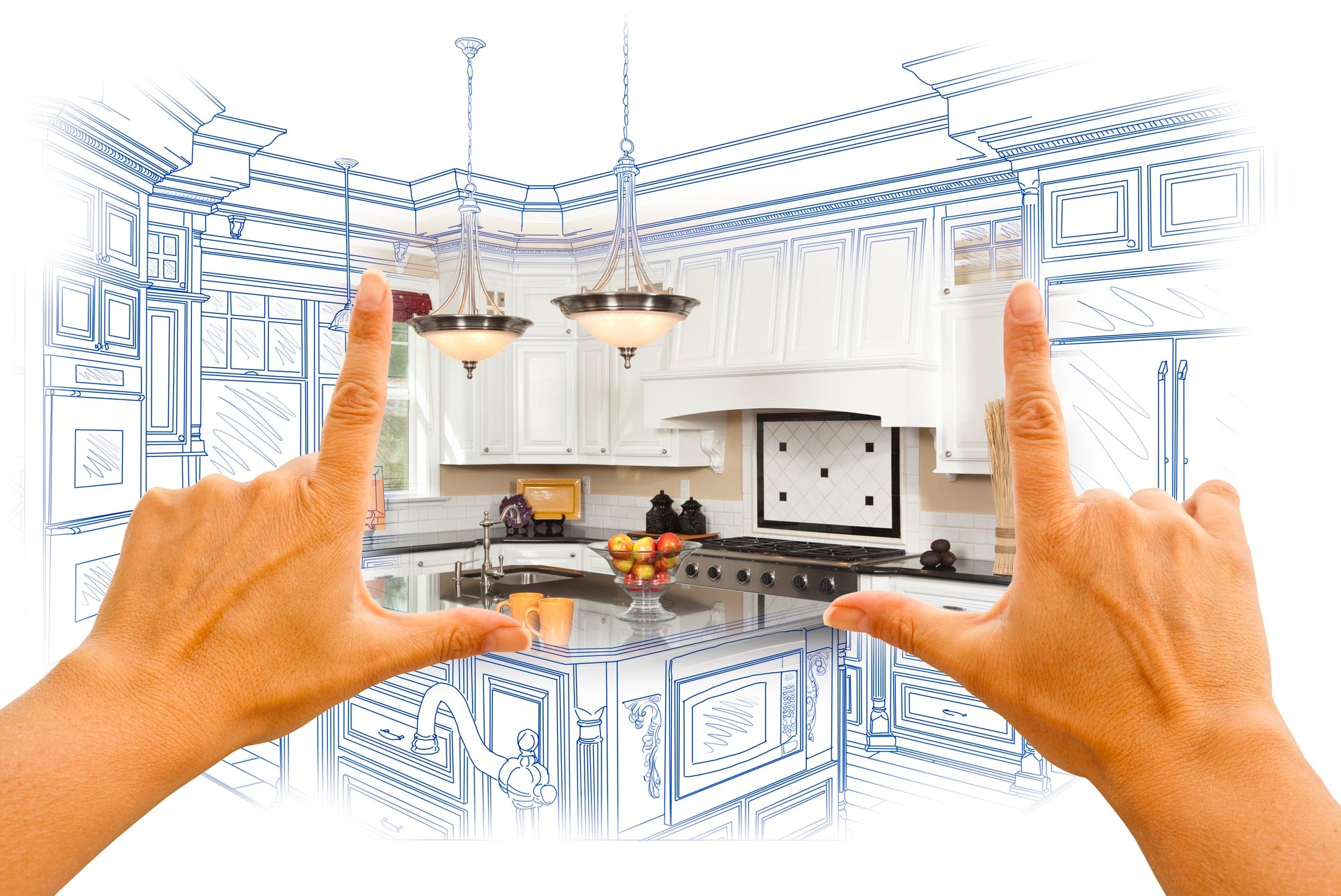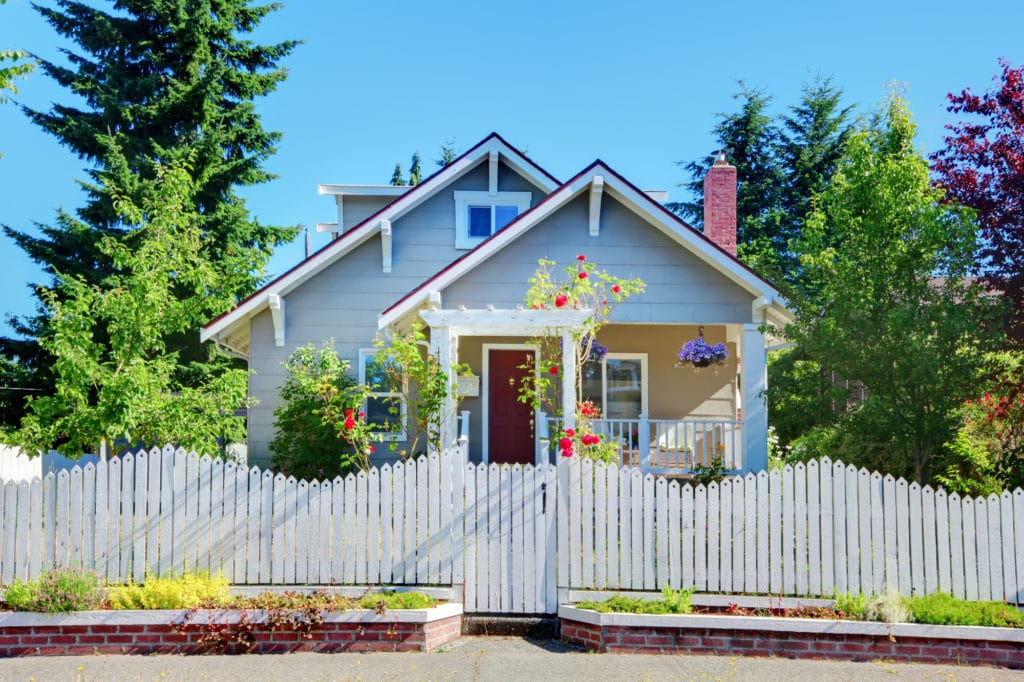Have you ever watched TV shows, like Flip This House and Flip or Flop, and wondered how to become a house flipper like them?
House flipping sounds and looks like fun. You get to shop around for different homes, fix them up, and sell them to an eager and happy family.
However, there’s a lot more that goes on behind the scenes on this show. If you want to know how to make money as a house flipper, then put on your construction hat because we’re sharing everything you need to know.
How Much Do House Flippers Make?
In the first quarter of 2019, properties sold at an average gross profit of $60,000. However, this gross number does not account for the costs of renovations and other expenses involved before flipping the house. The average cost of improvements often ranges from 20%-33% of the after repair value.
That means if you make $60,000 on a property flip on a house that sold for $155,040 and the repair cost was $31,008 (20% of ARV), then you take home only $28,992.
That’s why a house flipper salary fluctuates from each individual. It depends on the types of homes you work with and the number of houses you flip.
Can I Flip Houses for a Living?
Flipping houses for a living is possible, but there are risks. Depending on the market and your experience, your profit margins could be slimmer than expected — you might lose money. You’re probably wondering how much money do you need to flip a house? To make house flipping your full-time career, you’ll need a discerning eye for property value, financial savvy, and an experienced mentor to increase your chances for success.
How to Make Money Flipping Homes
Are you ready to learn how to flip houses for beginners? Here’s how:
#1 Shop Around for Your Next House Flip
When you’re looking to flip houses for sale, keep the following tips in mind:
- An excellent location has schools, stores, and public transportation nearby
- Search for neighborhoods with low crime rates
- Schools undergoing improvements hold potential house prospects
- Don’t automatically eliminate homes based on appearances — cosmetic repairs are better than structural renovations.
Don’t wait too long before deciding. Speed is often an element of house flipping. You’ll want to buy a property, fix it up, and then flip it as soon as possible.
#2 Get a Professional Home Inspection
After finding a home that interests you, hire a professional home inspector. Their findings will show how much repairs are needed. Structural issues like foundation cracks, old electrical wiring, or damaged chimneys could signify a poor investment. You might be better off retracting your offer and seeking another property to flip.
#3 Secure Financing
Many house flippers, especially the new ones, don’t have enough liquid cash reserves to purchase a property outright. You’ll likely need to secure a loan. Many types of lenders can help finance your property flip:
- Hard money lenders. Private individuals or groups of investors usually fund this type of loan for real estate purposes.
- Private money lenders. Similar to hard money lenders, this type of loan is usually funded by an individual.
- Conventional loans. You can apply for a traditional loan through your bank. However, this option is difficult to secure if the home is in poor condition or if you have limited real estate experience.
#4 Build Your Network
As a house flipper, you’ll be working with several companies and professionals. You’ll want to have the following contacts in your network:
- Home inspector
- Contractors (plumber, electrician, etc.)
- Real estate agent
- Title companies
When vetting who to work with, review their past work experience and references. Also, build relationships early on because you may require their services again for future property flips.
#5 Renovate The Home
After you’ve secured financing and assembled your team, it’s time to oversee the renovation process. As the project manager, request progress reports from your contractors. This will help keep everybody working on a schedule.

#6 Pay Your Contractors
Make sure you outline all your payment terms within your contract when working with contractors. Many contractors will require you to pay an initial deposit, another payment at 50% completion, and then a final payment at completion.
Remember to fulfill the details of your contract to ensure that all parties are satisfied. This will also help you build a positive rapport with your contractors and strengthen your network.
#7 Sell The Home
While you can attempt to sell your home yourself, there are several benefits to hiring a real estate agent. A real estate agent will…
- List your house on the market
- Market your house
- Screen for qualified buyers
- Manage the home showing
- Handle negotiations and close the transaction
While your real estate agent handles these responsibilities, you can dedicate your resources to finding your next property flip.

Frequently Asked Questions:
Q: Is Property Flipping Legal?
Yes, buying a home, fixing it up, and flipping it for a profit is legal. However, there is a particular scenario when property flipping is illegal. It’s usually called mortgage or loan fraud.
Here’s how it works.
A con artist bids on a condo at market value for $200,000. The con artist’s partner will also put in a bid for $300,000, far above its current market value.
The con artist then pays off a real estate appraiser to submit a false appraisal report, claiming the condo is worth $300,000. Using this false appraisal report, the con artist secures the loan for $300,00 from a second lender.
The con artist then uses the $300,000 loan to pay off the $200,000 loan. The con artist can then default on the $300,000 loan and split the $100,00 profit with their partner.
Q: Do I Have to Pay Taxes if I Flip a House?
Yes. If you are purchasing real estate and selling it to customers, the IRS will categorize you as a real estate dealer. Profits gained from house flipping tax at the ordinary income tax rate. Depending on your state, the tax rate can range from 10% to 37%. Also, you may be subject to self-employment tax, which is 15.3%.
Q: Can You Really Flip Houses With No Money?
Learning how to become a house flipper with no money is possible but comes with extra work
and risks. Often, you’ll need to find a private investor who will fund both the purchase price and the remodeling costs. Naturally, the private investor will expect a return on the investment and will often charge an interest rate higher than a traditional bank loan.
Q: Can I Get a Mortgage to Flip a House?
Yes, you can apply for a mortgage loan to purchase the property, but it isn’t ideal for house flipping. Lenders usually approve mortgage loans only when the borrower intends to reside in the property. Lenders hesitate to approve mortgage loans for property flips due to the involved risks. Moreover, your chances of getting approved are slimmer if you have zero to little experience flipping houses.
Q: Should I Get a Real Estate License to Flip Houses?
There is no legal requirement to obtain a real estate license before flipping houses. Still, a real estate license can boost your credibility and expertise. This can help you partner with reliable contractors and get approved for a loan.

Q: What is the 70% Rule in House Flipping?
The 70% rule is a guideline for determining how much to spend on a property, which is 70% of the property’s after repair value (ARV) minus repair costs.
Here’s an example.
Let’s say a property’s ARV is $100,000. 70% of $100,000 is $70,000. Repairs will cost $15,000. Subtract that from $70,000 and you now have $55,000.
According to the 70% rule, you shouldn’t spend more than $55,000 when purchasing the property. This rule is to create a money buffer to account for additional costs like taxes, insurance, commissions, and profit.
Knowledge Is Your Best Asset
House flipping holds many risks. There’s no guarantee that you will even flip a house for a profit—or if you manage to flip it at all!
That’s why knowledge is your best asset.
Do your homework. Work with professionals. Build your network. Surround yourself with business-minded individuals who also love talking business and learning together.
We’ve built a community to do just that. As a group, we turned our attention to real estate and various investment strategies. If you’d like to find out what we learned and discussed, here’s what went on during real estate investment month.













